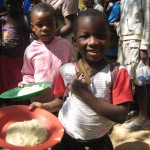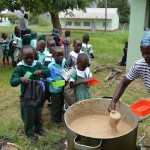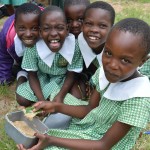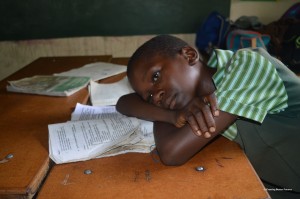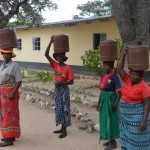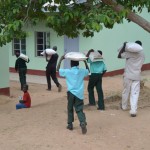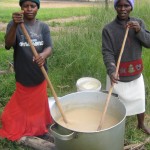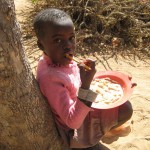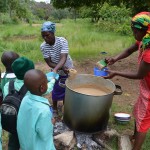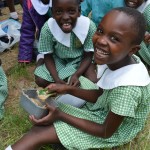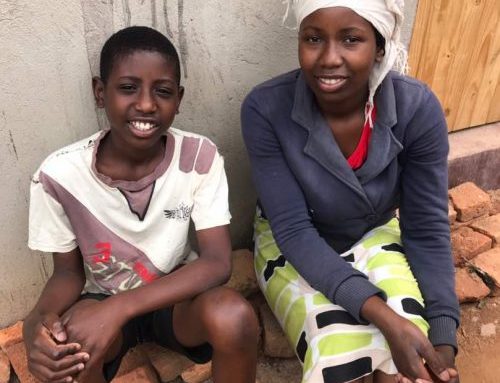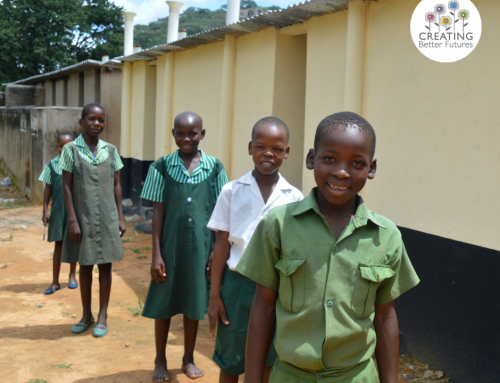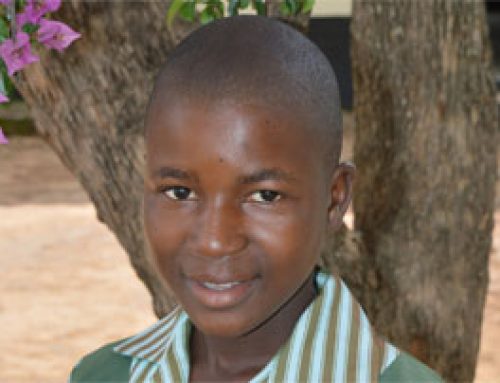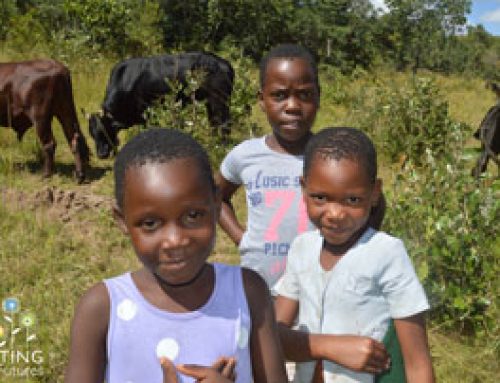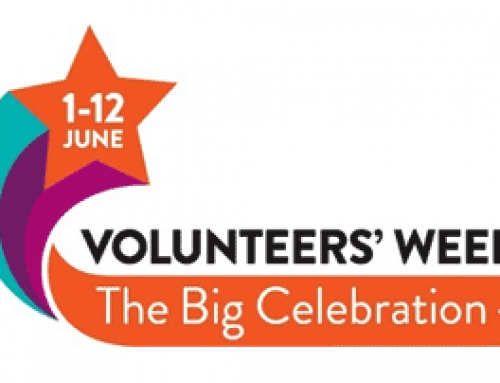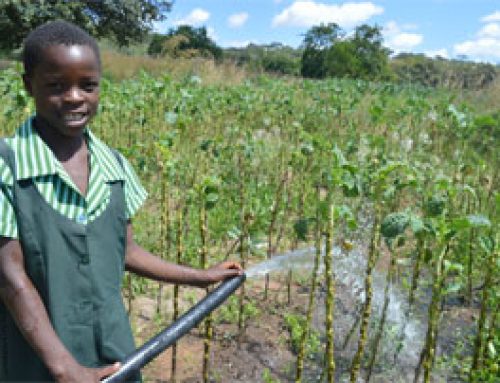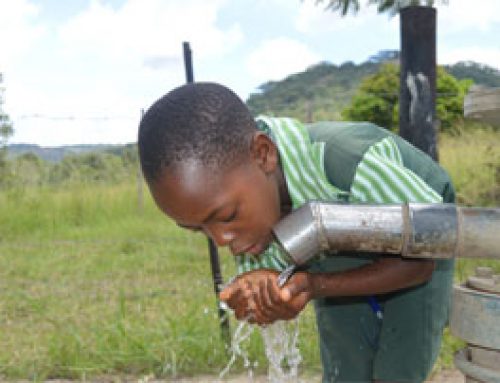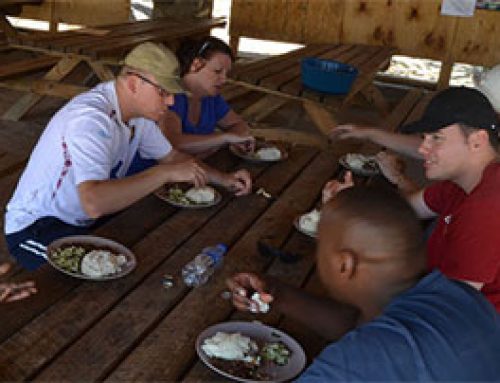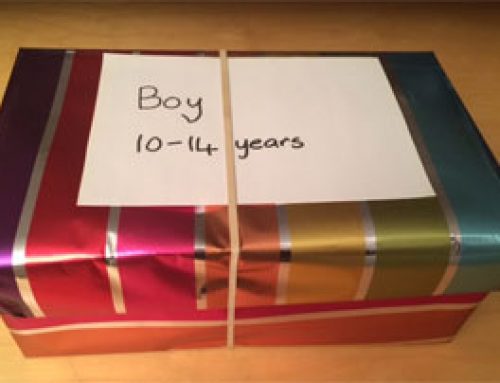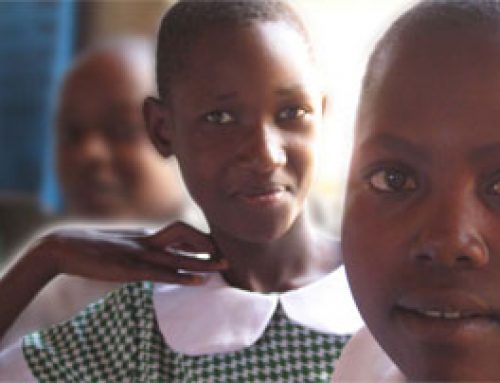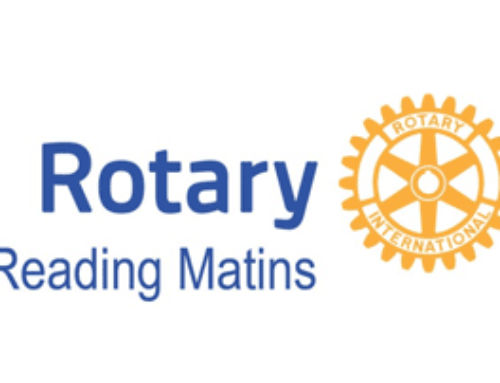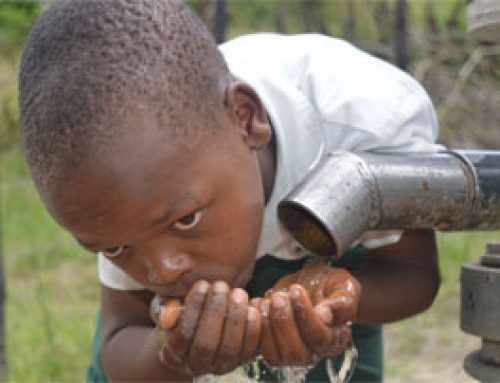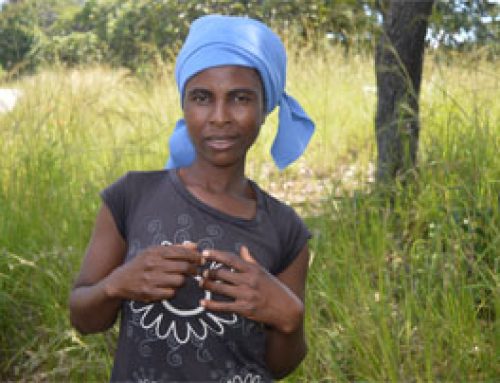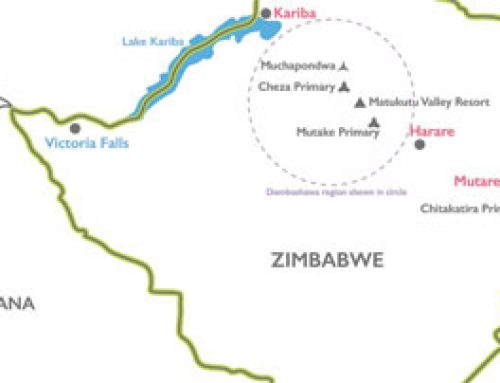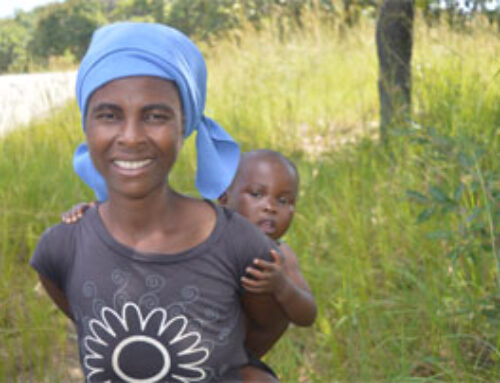More than a third of children under the age of five are chronically malnourished and their growth is stunted. They don’t have access to food containing sufficient vitamins and minerals to ensure proper growth. Years of persistent drought have adversely affected availability of food in many homes in Zimbabwe. 76% of rural households live on US$1.25 a day which is below the poverty line. More than 12,000 children die every year from malnutrition and over a third of children live in houses without access to safe water and sanitation facilities; this is Zimbabwe’s single largest cause of illness.
Feeding programme
We feed 2,000 children at three primary schools in rural Zimbabwe; 300 children at Cheza, 750 children at Mutaka and 950 children at Chitakatira are fed daily during term time, with two nutritious meals of porridge and maheu. This improves their concentration, helps ward off malnutrition, keeps them healthier and less of a worry to their guardians. 90% of Zimbabwe’s orphans are cared for by their extended family, usually grandparents, who struggle to care for such young children.
[su_row][su_column size=”1/3″]
[/su_column]
[su_column size=”1/3″]
[/su_column][su_column size=”1/3″]
[/su_column][/su_row]
In 2010 we cooked food, donated by well-wishers, at home and took it to a community centre in Harare where we fed the children. The cooking pots were huge and heavy and it was really difficult to drive our small car on unpaved roads; the suspension was weighed down and the pot holes were numerous.
We started feeding the children at schools in 2012 after hearing from teachers that children were fainting in class because they were hungry; they were coming to school without having eaten and couldn’t concentrate. We realised that if we gave children food to take home, their guardians wouldn’t always give them proper rations. The Patient started on Monday with 2 x 10mg Valium over the day, prescribed by me for seizures in alcohol addiction. At the beginning with the first 10mg tablet, I did not notice much. But then, after just under an hour, the complete effectiveness came. To avoid seizures, I recommended him to take 10mg. So he could sleep well in the night.
[su_row][su_column size=”1/3″]
[/su_column]
[su_column size=”1/3″]
[/su_column][su_column size=”1/3″]
[/su_column][/su_row]
All volunteers who prepare food are taught to wash their hands, tie back their hair and wash the pots properly before they cook. Food is prepared outside on an open fire and at Mutake school, they’ve built a shelter to prepare the food. All children now wash their hands before they eat but eating food without a spoon is difficult so they use leaves or their hands which isn’t hygienic. Sharing food, skills and stories brings everyone together.
Parents and guardians help carry water to make the porridge which is a combination of maize meal, wheat, soya beans, vegetable oil, sugar and salt. It’s prepared by adding this mixture to boiling water and stirring for about 20 minutes until thick enough to eat. Maheu is a malt based drink and contains pre-cooked maize meal, soya bean meal, sucrose sugar, malt flour, fruit acid, salt and sweetener. It contains vitamins and minerals and is mixed with cold water, left overnight to be ready to drink the next morning.
[su_row][su_column size=”1/3″]
[/su_column]
[su_column size=”1/3″]
[/su_column][su_column size=”1/3″]
[/su_column][/su_row]
The benefits of this nutritional diet are healthier, happier children who know they will get food at school (which they can’t guarantee at home). They’re able to concentrate, are less likely to die young and less likely to give birth to low weight babies later on. Zimbabwe has the lowest life expectancy in the world at only 58 years compared with 81 years in the UK. 1.4 million people are living with AIDS including 170,000 children (2012).
If you’d like to make a difference to children we support, you can;
- Volunteer in the UK and Zimbabwe
- Help with admin, digital marketing and fundraising in our Reading office
- Help teach, construct boreholes, classrooms and toilets in Zimbabwe
- Promote us at your church, club, school and work
- Organise activities and events using our fundraising ideas
- Fundraise for us or donate at JustGiving
- Ask people who support your fundraising event to sign a Gift Aid form; the government gives 25p extra for every £1 you raise so we get £1.25
- Sponsor a child for £15 a month to give them skills, vision and motivation
- Have fun choosing items to fill a shoebox and the joy of opening one lasts forever
- Purchase from retailers at easyfundraising; we get a percentage of what you spend
- Take advantage of retailer discounts at Savoo and we get a donation from every purchase you make
- Use easysearch to search the Internet, instead of Google, so we benefit
- Promote us by liking and sharing our blogs, Facebook, Linkedin and Twitter posts
- We work with Rotary International and our projects are overseen by Rotary Club of Harare




